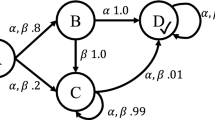Abstract
Requirements changes can occur both during and after a phase of development for a variety of reasons, including error correction and feature changes. It is difficult and intensive work to integrate requirements changes made after specification is completed. Sequence-based specification was developed to convert ordinary functional software requirements into complete, consistent, and traceably correct specifications through a constructive process. Algorithms for managing requirements changes meet a very great need in field application of the sequence-based specification method. In this paper we propose to capture requirements changes as a series of atomic changes in specifications, and present polynomial-time algorithms for managing these changes. The algorithms are built into the tool support with which users are able to push requirements changes through to changes in specifications, maintain old specifications over time and evolve them into new specifications with the least amount of human interaction and rework. All our change algorithms are supported by rigorous mathematical formulation and proof of correctness. The application example is a safe controller.
Similar content being viewed by others
Explore related subjects
Discover the latest articles and news from researchers in related subjects, suggested using machine learning.References
Prowell S J, Poore J H. Sequence-based software specification of deterministic systems. Software-Practice and Experience, 1998, 28(3): 329–344
Prowell S J, Poore J H. Foundations of sequence-based software specification. IEEE Transactions on Software Engineering, 2003, 29(5): 417–429
Mills H D. The new math of computer programming. Communications of the ACM, 1975, 18(1): 43–48
Mills H D. Stepwise refinement and verification in box-structured systems. IEEE Computer, 1988, 21(6): 23–36
Prowell S J, Trammell C J, Linger R C, et al. Cleanroom Software Engineering: Technology and Process. Addison-Wesley-Longman, 1999
Bauer T, Beletski T, Boehr F, et al. From requirements to automated testing of quasar aussenspiegeleinstellung. Technical Report 007.07E, Fraunhofer Institute for Experimental Engineering, 2007
Lin L. Management of Requirements Changes in Sequence-Based Software Specifications. Dissertation for the Doctoral Degree. University of Tennessee, 2006. http://sqrl.cs.utk.edu/btw/files/lin.pdf
Hopcroft J E, Ullman J D. Introduction to Automata Theory, Languages, and Computation. Addison-Wesley, 1979
Lin L, Prowell S J, Poore J H. Management of requirements changes in sequence-based specifications. Technical Report utcs-07-588, University of Tennessee, 2007
Buren J, Cook D. Experiences in the adoption of requirements engineering technologies. Crosstalk: The Journal of Defense Software Engineering, 1998, December: 3–10
Davis A. Software Requirements: Analysis and Specification. Prentice-Hall, 1989
Harker S, Eason K, Dobson J. The change and evolution of requirements as a challenge to the practice of software engineering. In: Proceedings of the IEEE International Symposium on Requirements Engineering, 1993, 266–272
Jones C. Strategies for managing requirements creep. IEEE Computer, 1996, 29(6): 92–94
Lavazza L, Valetto G. Enhancing requirements and change management through process modeling and measurement. In: Proceedings of the Fourth International Conference on Requirements Engineering, 2000, 106–115
Nurmuliani N, Zowghi D, Williams S. Requirements volatility and its impact on change effort: Evidence-based research in software development projects. In: Proceedings of the Eleventh Australian Workshop on Requirements Engineering, 2006
Kobayashi A, Maekawa M. Need-based requirements change management. In: Proceedings of the Eighth Annual IEEE International Conference and Workshop on Engineering of Computer-Based Systems, 2001, 171–178
Ajila S. Software maintenance: An approach to impact analysis of objects change. Software-Practice and Experience, 1995, 25(10): 1155–1181
Lee M, Offutt A, Alexander R. Algorithmic analysis of the impacts of changes to object-oriented software. In: Proceedings of the Thirty-Fourth International Conference on Technology of Object-Oriented Languages and Systems, 2000, 61–70
Moriconi M, Winkley T. Approximate reasoning about the effects of program changes. IEEE Transactions on Software Engineering, 1990, 16(9): 980–992
Ren X, Barbara G, Maximilian S, et al. Chianti: A change impact analysis tool for Java programs. In: Proceedings of the Twenty-Seventh International Conference on Software Engineering, 2005, 61–70
Lock S, Kotonya G. An integrated, probabilistic framework for requirements change impact analysis. Australian Journal of Information Systems, 1999, 6(2): 38–63
Korel B, Tahat L H. Understanding modifications in statebased models. In: Proceedings of the Twelfth IEEE International Workshop on Program Comprehension. IEEE Computer Society Press, 2004.
Seawright A, Brewer F. Clairvoyant: A synthesis system for production-based specification. IEEE Transactions on VLSI Systems, 1994, 2(2): 172–185
Author information
Authors and Affiliations
Corresponding author
Additional information
Software Quality Research Lab, Department of Electrical Engineering and Computer Science, University of Tennessee at Knoxville, http://www.cs.utk.edu/sqrl/
Rights and permissions
About this article
Cite this article
Lin, L., Poore, J.H. Pushing requirements changes through to changes in specifications. Front. Comput. Sci. China 2, 331–343 (2008). https://doi.org/10.1007/s11704-008-0034-7
Received:
Accepted:
Published:
Issue Date:
DOI: https://doi.org/10.1007/s11704-008-0034-7




